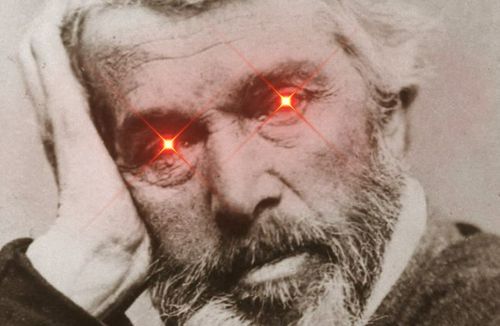Carlyle Demands a Political Superman
Dec 07, 2022 · 2 mins read
0
Share

Thomas Carlyle critiqued democracy, slammed rationalism, and became his century’s most famous writer. Chesterton called him a seer. Emerson: “He never wrote a dull line." Dig into Carlyle’s insights on how every society needs a Great Leader, why revolutions happen, and more 👇
Save
Share
The Great Man Theory: "The history of the world is but the biography of great men." A society that's hateful toward its great men has gone spiritually bankrupt. Carlyle: “The most significant feature in the history of an epoch is them manner it has of welcoming a Great Man."
Save
Share
The greats lead theological lives. They intuitively grasp the “divine significance of life.” And they want to “speak of this, to sing of this, to fight and work for this, in a great, victorious, enduring manner.” The “outward shape” of their activity depends on their “time.”
Save
Share
Great men are example setters - literal blueprints on the basis of which other men design their lives. Carlyle writes that the “leaders of men” are the “modelers, patterns, and in a wide sense creators, of whatsoever the general mass of men contrive to do or to attain.”
Save
Share
The 18th century marked a dark turn for humanity. Faith was replaced by “skepticism." Intellectual doubt soon became “moral doubt.” The conviction of heroes was replaced by “insincerity” and “spiritual paralysis.” “Wonder, Greatness” were out - “Triviality, formalism” were in.
Save
Share
Why revolutions happen. The masses scream in a “monstrous, loud, inarticulate voice of Chaos” when their leaders give up their rightful duty to lead and become “imbecile hypocrites.” Kings set the stage for their usurping when they reduce themselves to “Playactors.”
Save
Share
Revolution is inevitable when a king gives up truth for a “cunningly-devised fable.” When all his plans are nothing but “dead ghosts and unborn shadows" His regime becomes a “falsity of falsities.” The people sense this. Finally the house of cards “ceases to stick together.”
Save
Share
The core instinct of a revolution: to find a better “center to revolve round.” Even men in the “thickest of the madness” know that “disorder is dissolution, death.” What’s the point of democracy if it doesn’t help us attain a “truer Aristocracy, a Government again by the Best?”
Save
Share
When rebellion is as bad as tyranny. Carlyle: “Woe to him that claims obedience when it is not due; woe to him that refuses it when it is!” Claiming unearned obedience is rightfully and universally condemned. But refusing to give earned obedience is just as big a problem.
Save
Share
Bottom line. For Carlyle, there is no resource problem or technology problem. All problems boil down to a terribly low supply of Great Leaders. Is he right? I explore the traits of Carlyle's great leaders here: Caesar's CV. For more new writing, follow me!
Save
Share
0




